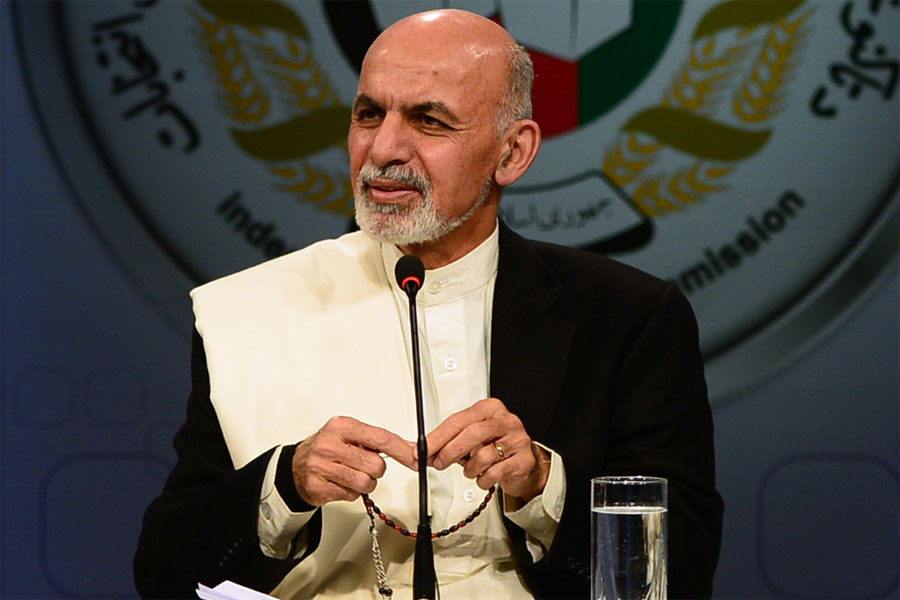Foreign Office (FO) spokesperson Tasnim Aslam on Thursday said that Afghan President Ashraf Ghani is scheduled to visit Pakistan on Friday (today) and denied the reports that Prime Minister Nawaz Sharif wrote a letter to his Indian counterpart Narendra Modi for a meeting on the sidelines of South Asian Association for Regional Cooperation (SAARC), being held this month.
[contentblock id=1 img=adsense.png]
The development, which follows the recent exchange of violent skirmishes at the Line of Control (LoC) and the Working Boundary between the armies of the South Asian neighbours, points to dim prospects of a meeting between the government heads of the two nuclear armed states. The two-day 18th SAARC summit is being held in Kathmandu, Nepal, on November 26. “The report is completely baseless. No such letter has been written,” Foreign Office spokesperson Tasnim Aslam responded to a query on whether the prime minister wrote a letter to his Indian Prime Minister Narendra Modi, in the weekly media briefing. Moreover, Afghan president would be on a two-day visit (November 14-15) to Pakistan. According to the FO spokesperson, Ghani is arriving here on Nawaz Sharif’s invitation.
He would be accompanied by a high-level delegation, including senior leaders, cabinet ministers, high-ranking officials, and business representatives. “The visit comes at a historic juncture in Afghanistan, marked by the recent peaceful transfer of power and formation of the government of national unity,” Tasnim Aslam said. The Afghan dignitary would also hold a meeting with his Pakistani counterpart Mamnoon Hussain who attended the swearing-in ceremony of the Afghan President on September 29. “Prime Minister Nawaz Sharif and Afghan President Ashraf Ghani would hold in-depth consultations on all dimensions of Pakistan-Afghanistan relations — with a particular focus on bilateral political engagement, trade and economic cooperation, border security and counter-terrorism, energy and connectivity, reconstruction and rehabilitation and people-to-people contacts,” the spokesperson said.
“The visit of President Ghani would help advance this process of consolidation and further expansion of Pakistan-Afghanistan relations, to the mutual benefit of the two countries and of peace, stability and development in the region,” she added. “Pakistan has all along supported peaceful democratic transition in Afghanistan— Prime Minister Nawaz Sharif’s vision of a [contentblock id=2 img=gcb.png]‘peaceful neighbourhood’ accords a place of prominence to a close, cooperative and expanding relationship with Afghanistan,” she said. She said that Pakistan’s major exports to Afghanistan included rice, petroleum products, animal and vegetable fats and oils, dairy products, construction material, plastic articles, fruits and vegetables, wooden products, chemicals, pharmaceuticals and electrical machines, while major imports from Afghanistan included vegetables, fruits, raw cotton, carpets and rugs and hides and skins.
She said the current volume of bilateral trade is over $2 billion, but has the potential for tremendous growth. It is pertinent to mention here that the transit trade is regulated by the Afghanistan-Pakistan Transit Trade Agreement (APTTA), which facilitates Afghanistan’s access to foreign markets through Pakistani sea-ports and land routes. Both sides have been engaged in efforts to ensure the optimal utilisation of the APTTA and are considering its extension to Central Asia. During his visit to Kabul in November 2013, Prime Minister Nawaz Sharif announced the up-scaling of Pakistan’s bilateral assistance for Afghanistan’s reconstruction and rehabilitation from $385 million to $500 million. The country has also offered $20 million for training/capacity-building of the Afghan National Security Forces (ANSF). Educational and people-to-people contacts have been growing significantly and the Pakistan government is providing 3,000 fully-funded scholarships to Afghan students.
In the regional context, the two countries are participating in major trans-regional initiatives namely Turkmenistan-Afghanistan-Pakistan-India (TAPI) gas pipeline and Central-South Asia Electricity Transmission and Trade Project (CASA-1000). To a query, Tasnim Aslam said that all aspects of bilateral relations including cross-border attacks and repatriation of millions of Afghan refugees back to their homeland would be taken up for discussion during President Ghani’s visit. “We are encouraged by the priorities articulated by the Afghan government that include early return of Afghan refugees,” she stated. On the question of presence of the Islamic State of Iraq and Syria in Pakistan, the spokesperson referred to the statement of Interior Minister Chaudhry Nisar Ali Khan, adding that Pakistan condemns terrorism in all its forms and manifestations. “We are an active partner of international community in combating this menace and we very scrupulously adhere to and fulfil all our obligations on counter-terrorism flowing from the United Nations Security Council,” she said.
[contentblock id=3 img=adsense.png]
Regarding Prime Minister Nawaz Sharif’s recent visit to China, the spokesperson said that Pakistan and China were strategic partners and engagement at the political level was a continuous two-way process. “Our economic cooperation is expanding and deepening and the memorandum of understandings (MoUs) and agreements are mostly in the energy and infrastructure domains,” she added. Asked to comment on former American diplomat Robbin Raphel being interrogated by the United States (US) federal agencies as part of a “counterintelligence probe”, the FO spokesperson termed the issue as an internal matter of the US but rejected the impression that Raphel was under interrogation for being a “friend of Pakistan”. “The impression that she is being interrogated because she is a friend of Pakistan is not correct. It has not been mentioned officially or unofficially by the United States. Robbin Raphel has had a long association with Pakistan and with this region and she is someone who understands this region,” she said.











